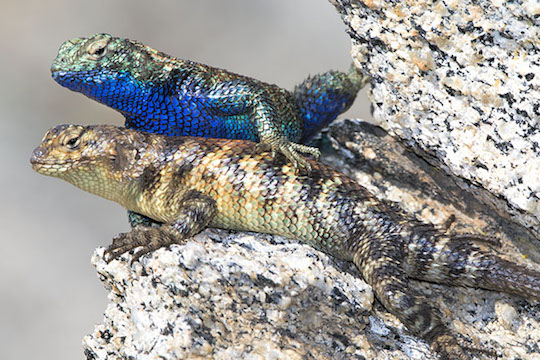In the Honors Program, junior students have the opportunity to brainstorm ideas for an original scholarship project and present their proposal during the spring quarter. During their senior year, Honors students work with their primary and secondary sponsors to execute their plans and share their findings with the La Sierra University community before graduation. This article features projects from Hannah Barnhart (Accounting/Pre-Law, Class of 2023), Liz Chau (Biomedical Science, Class of 2023), and Zilyn Yeoh (Music: Performance – Strings, Class of 2023).
Bridging the Gap Between Accounting and Law
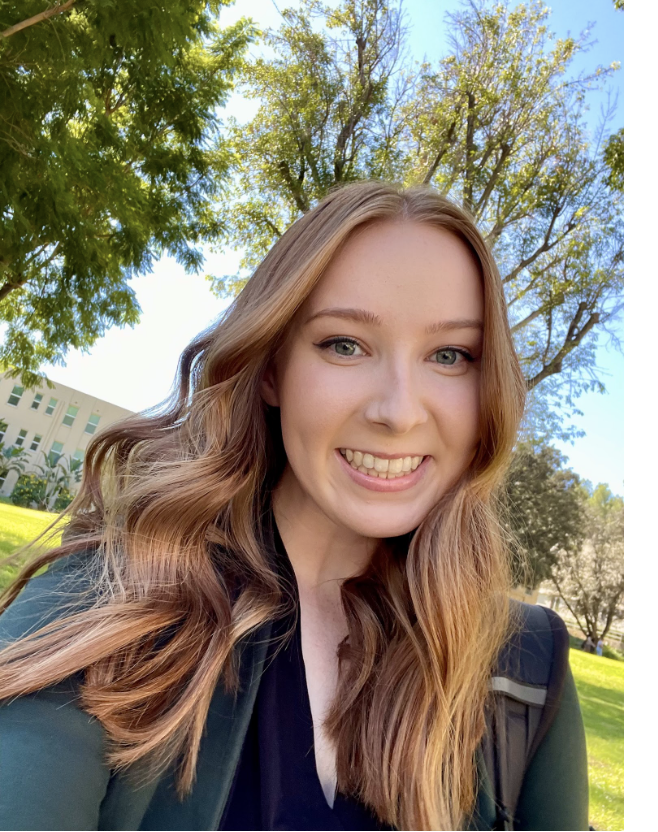
The Honors Scholarship Project is an opportunity for Honors students to showcase how their collegiate experience and knowledge can apply to further research in their professional careers. My project, Financial Fraud Case Studies: An Examination of High Stakes Litigation, examines the effectiveness of the legal system in dealing with financial fraud cases.
When brainstorming for this extensive project, I knew I wanted to combine my two areas of study: accounting and law. Typically, undergraduate accounting students do not get the opportunity to conduct research. My ultimate goal was to complete a project that would utilize my accounting knowledge and require me to learn how to read and analyze legal cases. By the end, I wanted to feel prepared and exposed to my dream career as a forensic accountant.
During my proposal planning process in junior year, I had a plethora of ideas for how to complete the project. I had planned to watch films in order to gain a perspective on how society romanticizes law and financial fraud. Using my findings from these films as an introduction for my project, I would dive into the case analysis. My proposal at the end of junior year included an introduction to the field of forensic accounting and explained the importance of bridging the gap between accounting and law. The four main questions I proposed were (1) why are financial frauds still occurring, (2) how does the law shape decisions people make, (3) what have courts interpreted the law to be, and (4) what motivates fraud. After presenting my proposal to a room full of my classmates and professors, I received positive feedback about the uniqueness of my project.
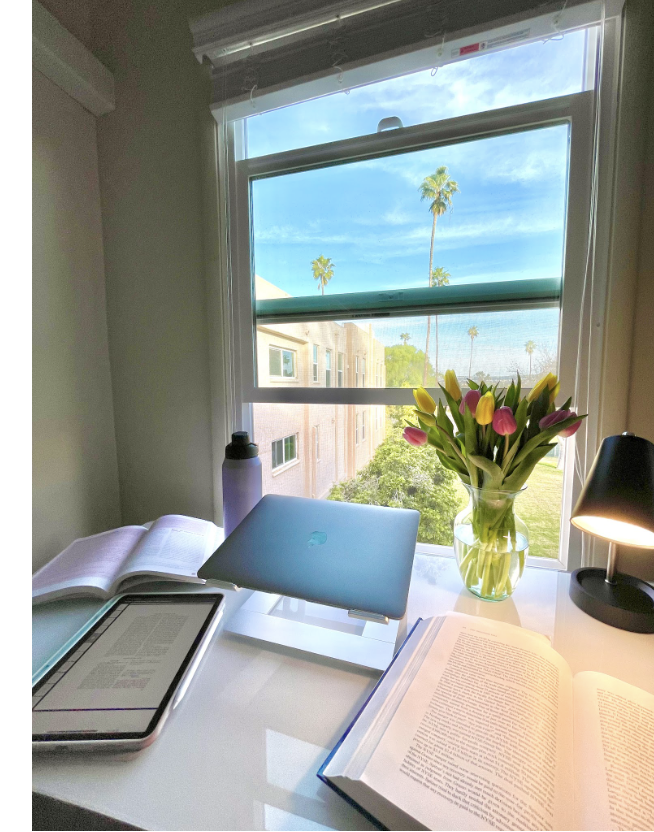
As I began the senior year process of reading through cases and deciding which ones would be best for my research, my project naturally evolved. Rather than having a large portion of my project focus on how fraud is portrayed in the media and interviewing different professionals in the field, I decided to limit my focus to legal analysis through cases. To further my professional knowledge, I was given the opportunity to attend the CalCPA Forensic Services Section Fraud and Financial Investigations Section meeting in Downtown Los Angeles. I was able to attend three seminars that ranged in topics from expert witnesses in trials to the role of forensic accountants in Securities and Exchange Commission (SEC) enforcement matters. The final seminar was led by two recently retired FBI agents that dedicated their careers to forensic accounting. The best part of attending the conference was the opportunity to meet forensic accountants and gain insight into how they combine accounting and law in their jobs. I was able to use the valuable information I gained from the lecture material in my research to apply real-world examples to my project.
The need for forensic accountants in litigation matters is a result of financial issues that require specialized knowledge in multiple financial disciplines. A skilled forensic accountant in the litigation arena can act as a powerful support to the attorney by helping present or defend claims. Forensic accountants should be able to understand the overall big picture of a legal case and the law. This project was particularly important to me because of the rapid growth of forensic accounting. In today’s computerized society, the attorney’s deployment of forensic accountants to inquire, identify, investigate, test, examine, analyze, and interpret financial documents and data is more crucial than ever before. Ultimately, the financial forensic results could uncover hidden assets, identify unreported income, determine lost profits, or aid the attorney in whatever specific financial issues the case requires. By completing the Honors Scholarship Project, I have learned research and analytical skills in the fields of accounting and law that are not typically available to undergraduate students.
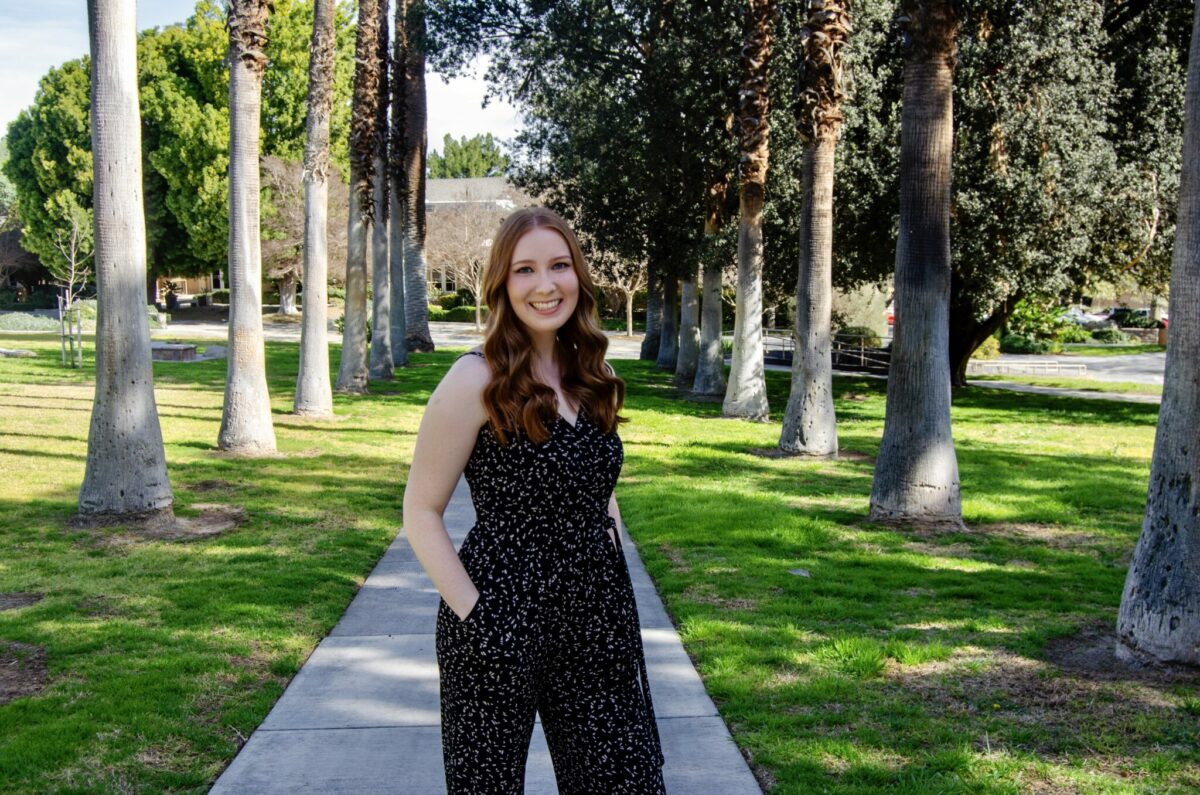
— Hannah Barnhart (Accounting/Pre-Law, Class of 2023)
The Endeavor of Scientific Discovery: An Interview with Student Researcher Liz Chau
Embarking on a research project requires a blend of curiosity and innovation. Liz Chau, a dedicated student researcher at La Sierra University, set out to explore the captivating realm of ecomorphology and convergent evolution in Southern California spiny lizards. In a recent interview, Liz shared her journey, shedding light on the project’s inception, challenges, and profound implications.
The premise of Liz’s project originated from a fusion of her own ideas and those of her faculty mentor, Dr. Jesse Grismer. Initially intending to investigate bite force and body morphology, they decided to narrow their focus to body morphology due to the difficulty in capturing the elusive lizards. Liz explained, “The topic is related to La Sierra because the lizard species is found close to campus.” This local relevance added an additional layer of significance to their research.
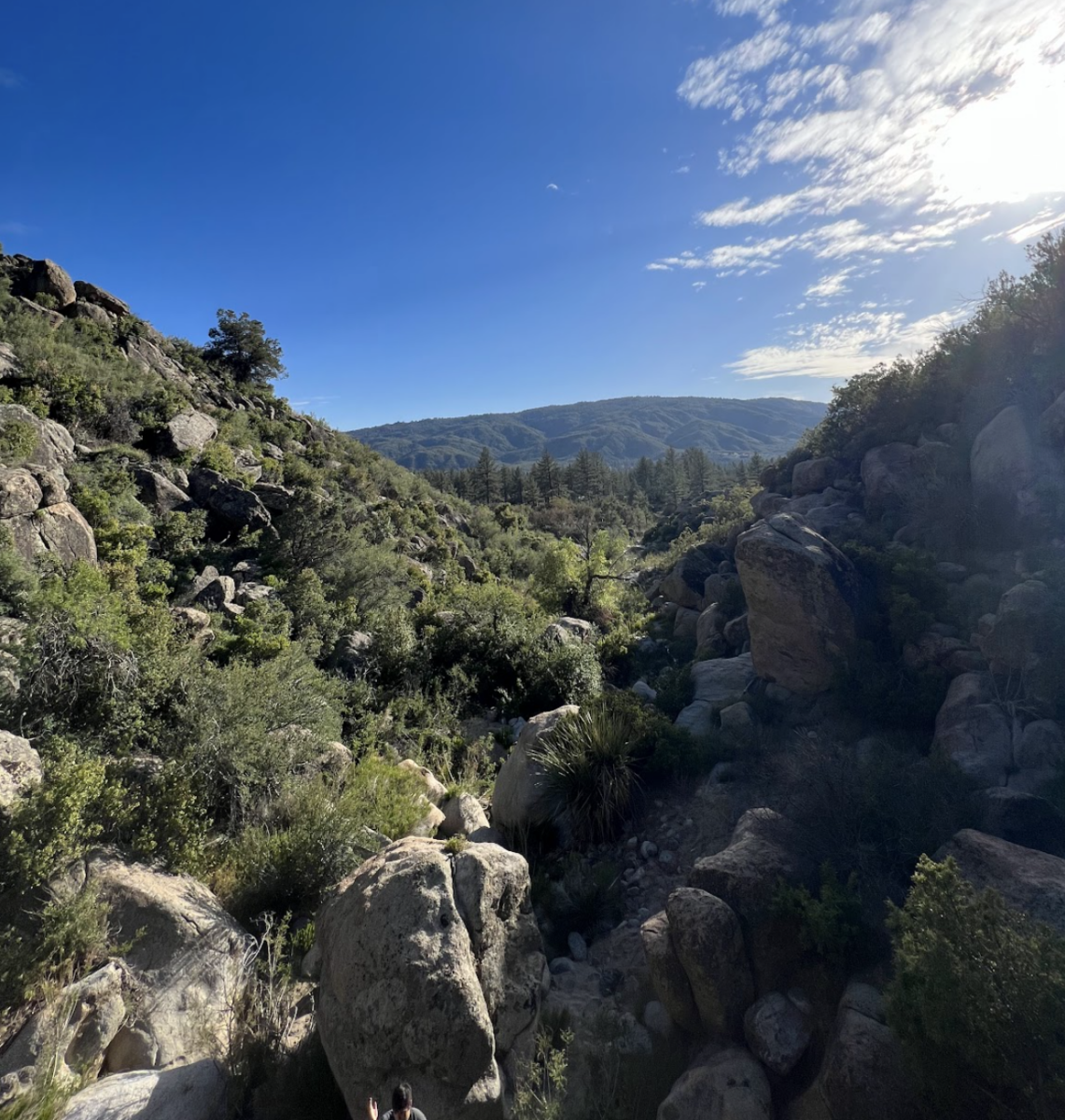
Liz described the research proposal process during her junior year as a seamless experience. The project was already in motion before the proposal, allowing her to simply backtrack and solidify the foundational aspects. This streamlined approach facilitated the proposal process, setting the stage for subsequent stages of the research.
Like many researchers, Liz encountered challenges along the way. The most formidable hurdle she faced was initiating the paper-writing process. Liz shared, “When you finally get to the writing stage of a paper, it’s exciting because you’re taking all your gathered information and putting it together, but it can be overwhelming because you don’t know where to start.” Unfamiliar with the background of her chosen topic, Liz invested considerable effort in conducting extensive research to establish a solid introduction. This highlights how critical thorough background research is in any scientific investigation.
Despite the challenges, Liz found immense personal value in her project. She considers ecomorphology a unique and enjoyable aspect of biology that, while it may not be explored in her future profession as a dentist, brings her fulfillment to study Moreover, she expressed gratitude for the abundant herpetology resources available at La Sierra and the guidance of esteemed professors such as Dr. Lee Grismer and Dr. Jesse Grismer. Liz believes that understanding species distributions and the significance of different body morphologies in various habitats has broader implications for conservation, particularly in the face of climate change-induced shifts.
Liz firmly believes that the skills she acquired throughout the research process will undoubtedly prove valuable in her future career. Discovering efficient research methodologies enhances organizational abilities while learning from different people broadens perspectives and fosters inspiration. Drawing parallels between the scientific community and the field of dentistry, Liz recognizes the importance of community and the opportunity to learn from peers.
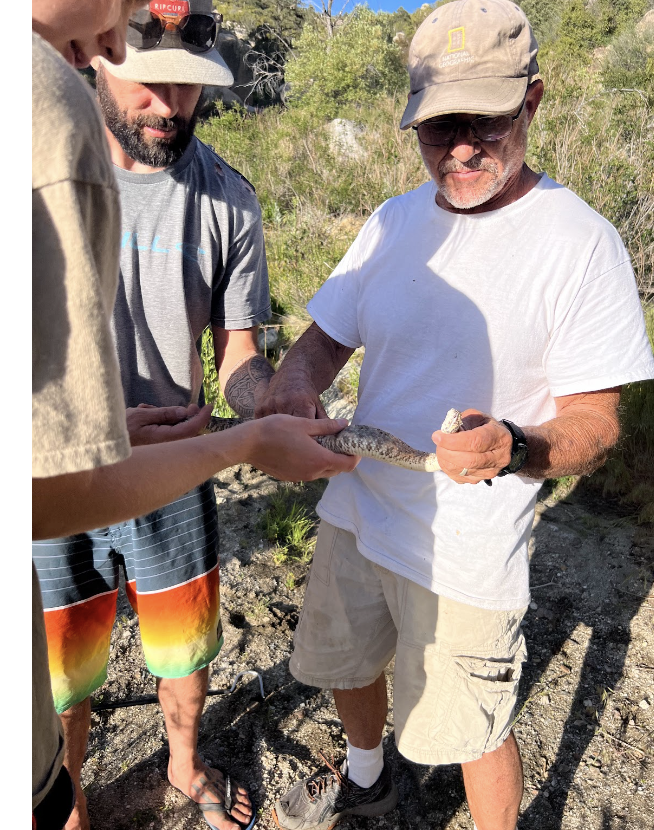
Working in the Grismer Lab has also provided Liz with a uniquely rewarding experience. She emphasized the joy of collaborating with the Grismer family themselves, who cultivate an atmosphere of camaraderie within the lab. Liz explained, “They do their best to make sure everyone in the lab gets along, feels comfortable, and there is a good vibe amongst everyone.” Additionally, Liz appreciated the exceptional proficiency and knowledge of the Grismer family, relishing the opportunity to learn techniques from the best in the field.
Liz enthusiastically identified her favorite part of assembling the project as creating figures and analyzing her data. Transforming raw data into visual representations allowed her to witness the application of concepts she had learned. In turn, this solidified her understanding and appreciation of the research.
Liz offered advice to fellow Honors students embarking on their research projects. She suggested initiating conversations with professors and expressing interest
in assisting them in their labs. Liz believes that there is always work to be done, regardless of the field of study. She emphasized the importance of passion and genuine interest, as professors can distinguish between those truly dedicated to research and those just looking for a line on their future applications. She also encouraged students to explore the diverse array of professors and fields of study available on campus, pursue their interests, and who knows, perhaps pave the way for future endeavors.
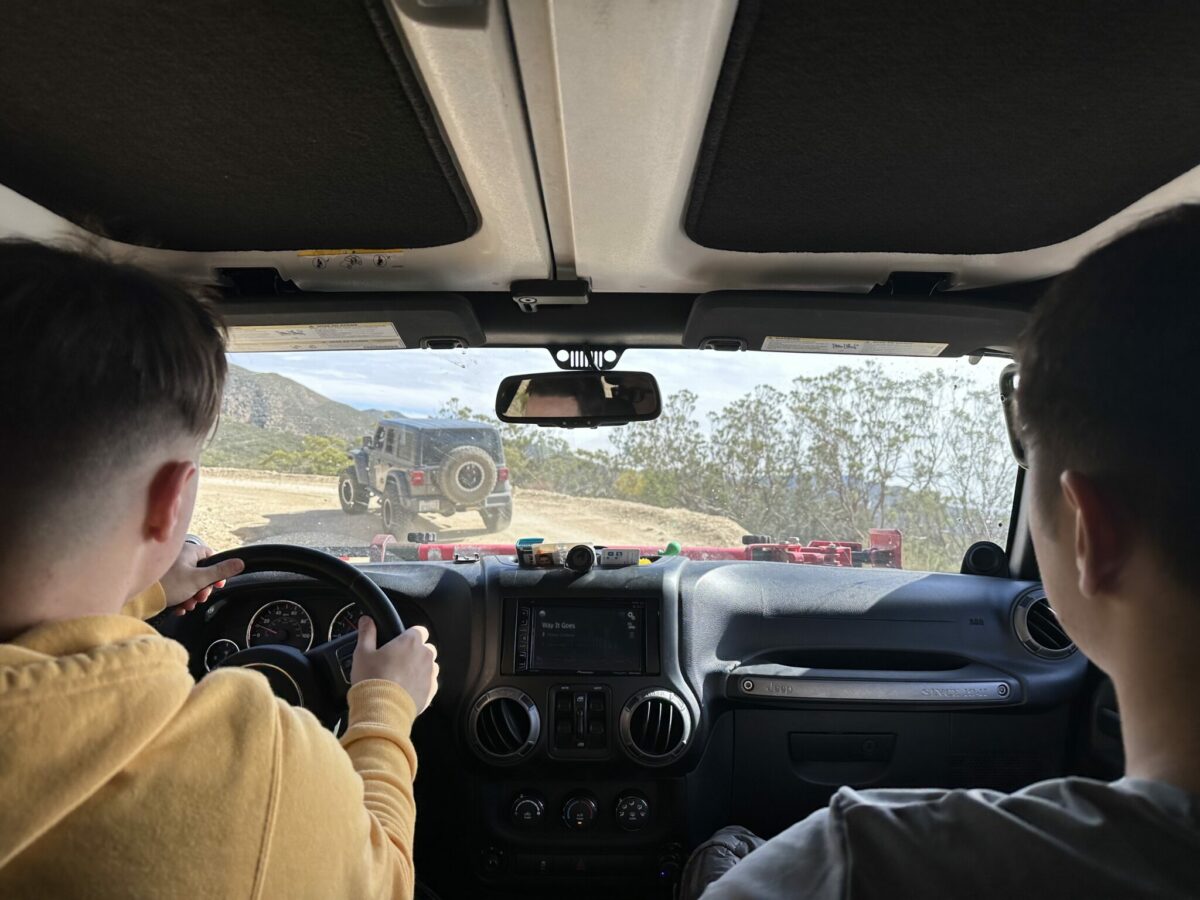
Liz Chau’s journey as a student researcher delving into ecomorphology and convergent evolution in Southern California spiny lizards exemplifies the spirit of scientific exploration and discovery. Through her passion, dedication, and collaboration with the Grismer lab at La Sierra University, Liz has not only unraveled fascinating insights into the intricate relationship between body morphology and habitat adaptation but has also gained invaluable skills and experiences that will shape her future career. Her advice to fellow students to follow their passions, engage with professors, and embrace the vast opportunities for research on campus serves as a guiding light for those embarking on their own scientific endeavors. Liz’s remarkable journey reminds us of the boundless wonders waiting to be uncovered and the transformative power of research in shaping our understandings of the natural world.
— Alley Falvo (Biology, Class of 2025)
Crafting Musical Impact: A Journey of Self-Expression Through Composition
In the pursuit of making music impactful, Zilyn Yeoh embarked on a unique project that transcended the boundaries of conventional research papers. Stepping away from her initial idea of exploring the influence of classical music on 20th-century media, she chose a more creative path that allowed her to showcase herself and delve into the depths of self-expression. Through the creation of an album comprising eight diverse pieces, she aimed to offer the audience an enchanting journey through the ages of music.
Yeoh’s project took an unconventional timeline as she shifted from research to composition. In her junior year, she brainstormed and secured sponsors for her initial research on the influence of classical music in modern media. However, upon entering her senior year and consulting with professors, she made the decision to switch to a composition project. Dr. Narducci joined as a sponsor, whom Yeoh met with consistently and credits with giving her “a lot of inspiration and insight to composition.” Dr. Narducci, her theory mentor, and violin professor all played crucial roles in supporting her throughout the project.
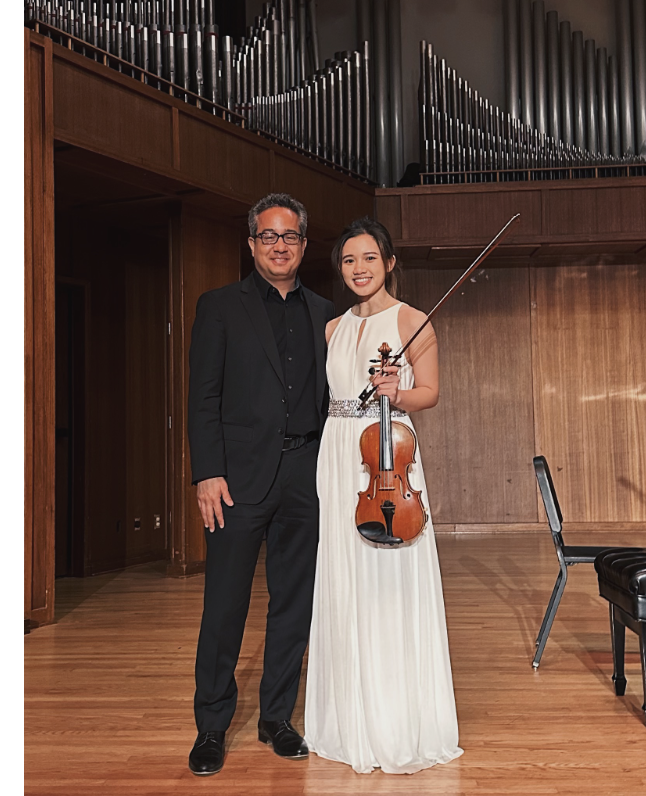
Her new direction involved composing, seeking inspiration, and collaborating with fellow musicians and professors. With approximately two pieces composed per quarter, she regularly sought guidance and feedback from her professors and mentors, refining her artistic vision. In the fall quarter, two compositions were completed, leading to a live performance in the subsequent winter quarter. Yeoh said, “We talked about the details to construct an album – how many songs, direction, theme, and title of the album.” In the winter quarter, two more compositions were created, and she is currently working on two additional pieces, as well as refining her works for recording and presentation. Throughout the process, she collected inspiration, wrote compositions, and delved into the theoretical foundations of various musical styles from different eras.
The project focused on self-expression and the desire to share her musical creativity authentically. Yeoh wanted to unveil the person she was, as she shared, “I realized that I hadn’t been able to really show who I was… to showcase myself and express myself.” By showcasing her personal style, she added diversity and richness to the musical landscape, offering a new perspective to the ages of music she was representing and emulating in her music.
Recently, she has been exploring post-tonal composition, breaking away from traditional majors and minors. This newfound freedom allowed her to delve into patterns and explore the depths of her creativity. As a science major, she found solace in the logical aspects of music, such as numbers and intervals. One of her compositions, aptly named “Pi,” was an innovative interpretation of the numerical sequence, where each digit represented a specific note, interval, or sound. “It actually sounds good!” she said proudly.
One of the biggest challenges she faced was finding inspiration for each composition. She strived to balance creating unique pieces that resonated with her style while still keeping the motifs of the musical era she was focusing on. Yeoh commented, “It’s difficult to compose differently each time” as she often ran into composer’s block –– in which she became stuck on a piece –– and for the sake of progress, had to leave it. Even then, sometimes coming back later, the piece might not work out. Some compositions were easier than others, some took weeks or less while others took months or more.
Nevertheless, she found inspiration in fantasy and nature. An unforgettable moment on a night flight traveling home to Malaysia, where she gazed at the stars and witnessed the guiding light of Polaris, inspired her. Yeoh reminisced, “I wrote a song on that flight,” how her metaphorical pen flew across the page inspired by the possibilities and vastness of the blanket of stars across the sky. The realms of fantasy and nature served as powerful muses, guiding her compositions, and fueling her creative spirit.

Balancing classes and the demands of the project proved to be a constant challenge. Despite this, she found solace and relaxation in composing, making the process enjoyable and fulfilling. Yeoh mused that the night-time hours proved to be her most productive, while the morning hours proved more challenging due to an overly active mind. Nevertheless, composing at night meant she had to stay up late which was not optimal. To manage her workload effectively, she spread out her composition tasks, working on them consistently throughout the day or week to avoid last-minute cramming and late-night sessions.
Yeoh emphasized the importance of finding inspiration and pursuing what brings the most joy. “Do what inspires you and what you enjoy the most rather than cramming yourself into a corner. For this project I think you have to know what you like so it’s not a chore.” Avoiding the confinement of a creative corner, she encourages others to explore their preferences and interests. One memorable moment from her journey was performing a piece alongside her theory professor, where she showcased her voice and personal expression. It was a pivotal moment of validation and connection with her audience.
As she prepares to present her project during finals week, she contemplates the future. She envisions future albums focused on specific eras or themes, such as exploring constellations and translating their unique characteristics into musical expressions. Though composition may remain a side project, she hopes to keep nurturing her passion for composition as she pursues her long-term goal of becoming a doctor.
— Elizabeth Ton (Biomedical Science, Class of 2026)

